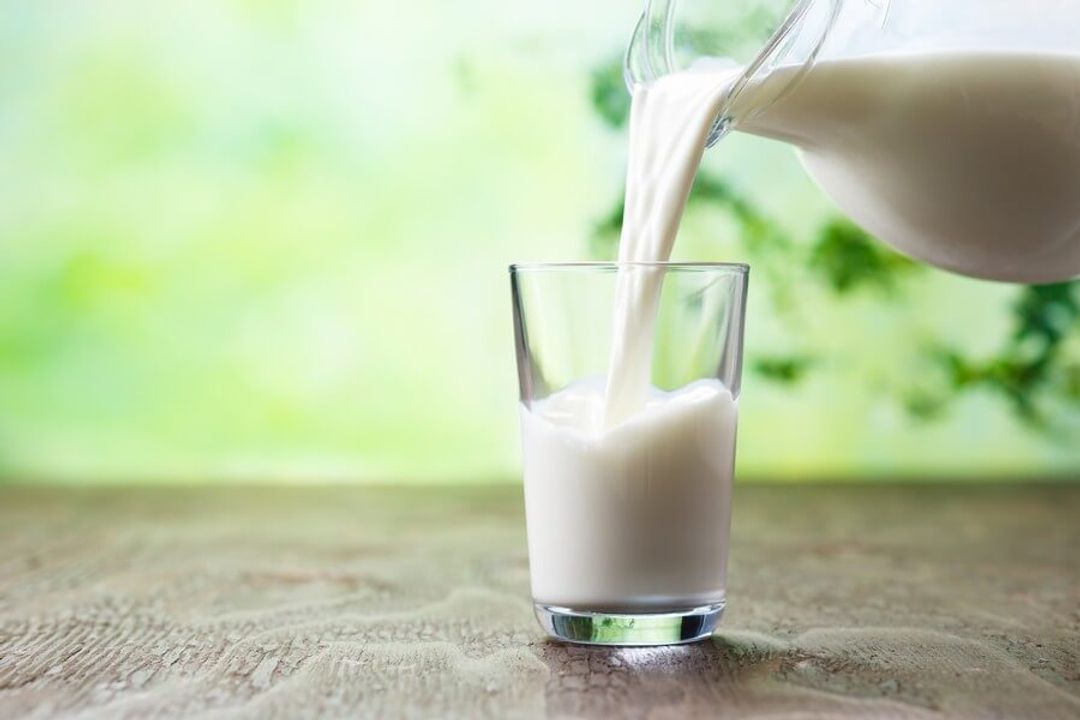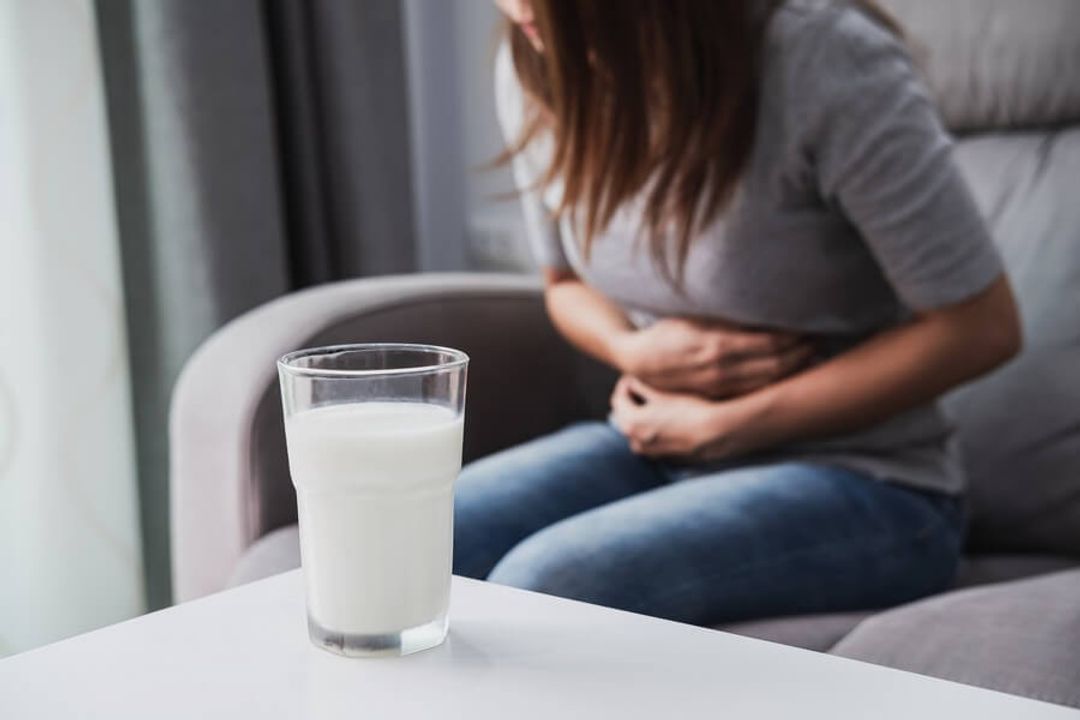Is Dairy Inflammatory? Explained

Do dairy products cause inflammation? Is dairy bad for inflammation? Click here to find out if you can get inflammation from dairy.
The evidence is well established that our food directly affects our health span and our risk for chronic inflammatory diseases. This fact is galvanising an increasing number of people to adopt an anti-inflammatory diet as part of a healthy lifestyle to enhance wellness and longevity.
While there are clear culprits to steer clear of when it comes to foods that cause inflammation in the body, such as refined carbohydrates, trans fats, sugar and artificial ingredients, there are other food groups whose inflammatory status remains murky.
According to research, humans have been consuming milk from cows, sheep, goats and other animals for millennia. Standing the test of time, milk (and its many cousins) remains a staple of people’s diets to this day.
However, in recent years, the link between dairy products and inflammation has become the subject of significant speculation and debate within the scientific community, mainstream media and the wellness industry. But how accurate is the claim that dairy causes inflammation?
With conflicting evidence on the association between dairy and inflammation, this article takes an in-depth look at the data on dairy causing inflammation to determine the validity of this claim.
What is Inflammation?
Inflammation is the body’s natural defense mechanism against injury, infection, or illness. This immune response can be categorized into two types:
- Acute Inflammation: A short-term response necessary for healing the body. Examples include swelling around a wound or fever during an infection.
- Chronic Inflammation: A long-term, low-grade immune response that attacks healthy cells and organs, potentially leading to conditions such as heart disease, diabetes, and autoimmune disorders.
Understanding inflammation is crucial because it acts as a hidden compass for your overall health. For more insights, explore chronic inflammation. For more insights, explore chronic inflammation.
The Link Between Dairy and Inflammation
Dairy is a collective term for food products derived from animals, such as cows, sheep, goats, camels and buffalo, with items comprising milk, cheese, yoghurt, butter and cream. But do dairy products cause inflammation?
 Information on this topic is often conflicting and confusing, making it difficult for consumers to determine what is best for their health. The primary challenge regarding research relates to variations in study design, research methods and the differences in participants' demographics, health status and diet composition, making the comparison of results somewhat problematic.
Information on this topic is often conflicting and confusing, making it difficult for consumers to determine what is best for their health. The primary challenge regarding research relates to variations in study design, research methods and the differences in participants' demographics, health status and diet composition, making the comparison of results somewhat problematic.
With that said, for the majority of people, research does not support a consistent link between dairy and inflammation.
For example, a 2021 review of 27 trials analysing the effects of dairy on inflammatory markers, such as C-reactive protein, tumour necrosis factor-alpha and interleukin-6, found that items like milk, yoghurt, cheese and isolated milk proteins did not affect inflammation in the body. Furthermore, some studies featured in the review reported a reduction in at least one inflammatory biomarker following dairy consumption.
Here is a list of reasons why.
Rich Source Of Nutrients
 Dairy products are a rich and highly-bioavailable source of essential micro- and macronutrients, including:
Dairy products are a rich and highly-bioavailable source of essential micro- and macronutrients, including:
- Vitamin A
- Vitamin B6
- Vitamin B12
- Vitamin D
- Vitamin K
- Calcium
- Magnesium
- Potassium
- Phosphorus
- Iodine
- Zinc
- Fatty acids
- Proteins
- Probiotics.
Many of these nutrients are difficult to obtain from a diet with limited or no dairy intake. More specifically, dairy products provide up to 60% of the recommended daily allowance of calcium, while fermented dairy products such as yogurt and kefir are excellent sources of vitamin K.
Fat Content
Dairy products are high in saturated fats, and for a long time, it was understood that these fats were linked to inflammation and chronic conditions such as cardiovascular disease. However, recent research has refuted such claims.
For instance, a 2010 meta-analysis involving over 350,000 participants found no association between saturated fat intake and coronary heart disease or cardiovascular disease.
Moreover, a 2017 review analysing results from 52 studies concluded that dairy, including the full-fat type, appeared to have a small yet statistically significant anti-inflammatory effect on the body.
Dairy also contains short-chain fatty acids, which act as a source of energy for cells and have been associated with numerous health benefits, such as reducing the risk of diabetes, obesity, heart disease and metabolic syndrome.
Support Gut Health
 Fermented dairy products, such as yoghurt, cheese and kefir, are a rich source of good bacteria (probiotics), living microorganisms that support a healthy gut microbiome and have potential therapeutic and preventative health benefits.
Fermented dairy products, such as yoghurt, cheese and kefir, are a rich source of good bacteria (probiotics), living microorganisms that support a healthy gut microbiome and have potential therapeutic and preventative health benefits.
Gut health is the cornerstone of reducing overall inflammation in the body. Since the heart of the immune system resides in the gut, probiotics play a key role in improving immune function and strengthening the gut lining. As a result, fewer harmful pathogens and irritants can enter the bloodstream and cause inflammation.
Studies have linked increased consumption of fermented dairy to a lower LDL (bad) cholesterol and higher HDL (good) cholesterol and a reduced risk of hypertension, cardiovascular disease and stroke. Furthermore, such dairy products have also been shown to reduce the risk of type 2 diabetes by improving insulin resistance.
For a personalized view on your gut microbiome, consider taking a Gut Health Test.
Additional Benefits of Dairy
Bone Health
Dairy’s high calcium and vitamin D content are critical for maintaining bone density and reducing the risk of osteoporosis.
Weight Management
Some studies suggest that dairy consumption, particularly high-protein options, can support weight loss and muscle maintenance.
Cardiovascular Health
Emerging evidence links dairy consumption with a reduced risk of cardiovascular events, particularly when choosing minimally processed, high-quality products.
Why Does Dairy Cause Inflammation In Some People?
The body of medical literature exploring the association between inflammation and dairy overwhelmingly refutes its theoretical inflammatory effect.
Researchers suggest this inverse association is owing to the nutritional matrix of dairy, which includes a wide range of amino acids, vitamins, minerals and other bioactive compounds, offering superior health value to single-nutrient foods.
With that said, some exceptions exist to the abovementioned findings where dairy causes inflammation. Such cases are outlined below.
Dairy Allergy Or Intolerance
 Some portions of the population have an allergy to milk proteins or are intolerant to lactose, turning dairy into a pro-inflammatory food.
Some portions of the population have an allergy to milk proteins or are intolerant to lactose, turning dairy into a pro-inflammatory food.
People with lactose intolerance lack the enzyme lactase necessary for digesting lactose, a sugar present in milk. This condition affects around 65% of the human population, and symptoms include:
- Abdominal cramping
- Bloating
- Gas
- Diarrhoea
- Nausea.
While lactose intolerance does not cause inflammation, eliminating dairy products from the diet can alleviate inflammatory symptoms. Other options include consuming lactose-free dairy products, switching to plant-based alternatives or taking a lactase supplement when eating dairy products.
Those with a dairy allergy have an adverse reaction to the milk proteins A1 beta-casein or whey, which trigger an inflammatory immune response at varying degrees. The effects of such reactions can be mild to fatal, ranging from skin reactions, swelling and increased mucus to gastrointestinal issues and anaphylactic shock. In such cases, dairy products and any foods containing dairy ingredients must be avoided altogether.
Dairy Sensitivity
Leaky gut syndrome is a condition characterised by a compromised gut lining contributing to low-grade inflammation. Such increased intestinal permeability allows bacteria and other toxins to bypass the gut wall and enter the bloodstream, causing the immune system to produce an allergic response to certain foods, including dairy.
Other intestinal conditions that can trigger an inflammatory response after consuming dairy include:
- Small intestinal bacterial overgrowth (SIBO)
- Irritable bowel syndrome (IBS)
- Gluten intolerance.
 Such conditions may increase an individual’s sensitivity to milk and other dairy products, potentially manifesting inflammatory effects such as:
Such conditions may increase an individual’s sensitivity to milk and other dairy products, potentially manifesting inflammatory effects such as:
- Acne
- Eczema
- Psoriasis
- Nasal congestion
- Fatigue
- Brain fog
- Energy crashes.
Adopting an elimination diet can help determine whether an individual has a dairy sensitivity. This process involves cutting out dairy products for several weeks and then reintroducing them into the diet while paying attention to any changes in symptoms of inflammation and irritation during this time.
Highly-Processed And Low-Quality Forms Of Dairy
 The quality of dairy that is consumed has a large influence on its inflammatory effects on the body. For instance, highly-processed options, such as flavoured milk, yoghurts and ice creams, contain excess sugar, chemical additives and artificial preservatives that can increase inflammation.
The quality of dairy that is consumed has a large influence on its inflammatory effects on the body. For instance, highly-processed options, such as flavoured milk, yoghurts and ice creams, contain excess sugar, chemical additives and artificial preservatives that can increase inflammation.
Moreover, conventional dairy products obtained from factory-farmed cows may contain added chemicals, hormones and antibiotics, which some research suggests may have negative consequences for human health.
To prevent inflammation, it is recommended to opt for plain, unsweetened versions of dairy products, preferably sourced from organic grass-fed cows. In fact, research shows milk from pasture-raised varieties of cattle contains higher amounts of anti-inflammatory omega-3 fatty acids as well as iron and the antioxidant vitamin E.
The Role of Individual Microbiomes
A person's unique gut microbiome significantly influences how their body reacts to dairy. Certain bacterial strains can help digest lactose and modulate inflammatory responses, while an imbalanced microbiome might exacerbate issues. Tailoring dietary choices based on microbiome health may improve tolerance to dairy and reduce inflammation.
The Impact of Portion Size and Frequency
The amount and frequency of dairy consumption play a crucial role in its inflammatory effects. Overconsumption of dairy, even in those without allergies or sensitivities, can lead to metabolic stress and inflammation. Conversely, moderate intake, especially of fermented dairy, is less likely to cause adverse effects and may even have anti-inflammato
Alternatives to Dairy for Reducing Inflammation
For those who choose to avoid dairy, consider these nutrient-rich alternatives:
- Plant-based milk: almond, soy, oat, coconut, and hazelnut
- Non-dairy yogurts made from cashews, coconuts, or almonds
- Nutritional yeast as a cheese alternative
- Fortified plant-based beverages for calcium and vitamin D
- Seeds such as chia and flaxseed for omega-3 fatty acids
Take Care Of Your Health With GlycanAge
 Evidence suggests that dairy does not cause inflammation for most people, and there is no need to eliminate it from the diet. In fact, some research indicates milk and other dairy products may reduce inflammation and are recommended to be eaten as part of a healthy balanced diet due to their high nutritional value.
Evidence suggests that dairy does not cause inflammation for most people, and there is no need to eliminate it from the diet. In fact, some research indicates milk and other dairy products may reduce inflammation and are recommended to be eaten as part of a healthy balanced diet due to their high nutritional value.
However, dairy can trigger an inflammatory reaction in people with a dairy allergy, sensitivity or lactose intolerance. In such instances, it is advised to eliminate dairy from the diet and opt instead for non-dairy, plant-based alternatives. It is also important to replace lost nutrients with other nutritional sources.
Inflammation is the body’s natural response to injury, infection or illness. While acute inflammation is an immune response necessary for healing the body, chronic inflammation is counterproductive, attacking healthy cells and organs and eventually leading to chronic disease.
A GlycanAge home test kit can give you an accurate estimate of your true biological age and your risk for age-related chronic disease by examining the health of your immune system and the amount of inflammation in your body.
Such information can help you understand how your current lifestyle contributes to low-grade inflammation within the body and empower you to make the necessary changes to reverse your biological age and improve wellness and longevity.
All it takes is a quick and easy finger prick test to take your health matters into your own hands. Once you’ve submitted your blood sample to the GlycanAge lab, it’ll take 3-5 weeks to complete a comprehensive analysis and return a personalised report on your results.
You will also receive complimentary 1-1 consultations with scientists and/or healthcare professionals to understand your results, devise an action plan to prolong and reverse your biological age and improve your overall wellness as you get older.
With various price points and payment plans available, there is an option to suit each person who wants an accurate, reliable and affordable way to determine their health state. Start your wellness journey today by ordering your GlycanAge home testing kit.
FAQ
How do I know if dairy is inflammatory for me?
There are many symptoms that may indicate a dairy allergy or sensitivity. Signs of inflammation or irritation resulting from dairy consumption include:
- Bloating
- Abdominal cramping
- Changes in bowel movements
- Gas
- Nausea
- Fatigue
- Skin irritations, e.g. hives, acne, eczema, psoriasis
- Swelling of lips, mouth or throat
- Nasal congestion
- Increased mucus.
How long should I cut out dairy to see if I have an intolerance?
It can take up to 21 days for all traces of dairy proteins, sugars and fats to leave the body. If you suspect you have a dairy intolerance, eliminate dairy products from your diet for a minimum of three weeks before reintroducing them and evaluate any changes in your symptoms to determine intolerance.
What can I eat instead of dairy?
If you decide to eliminate dairy from your diet, it is important to eat other nutrient-rich foods to prevent deficiencies. Ensure you follow a varied whole-foods diet consisting of colorful fruits and vegetables, beans and legumes, healthy fats, whole grains, and lean protein. There are plenty of non-dairy milk alternatives, including oats, coconut, soya, hazelnut, and almond.
What are the 10 Worst Foods for Inflammation?
Certain foods significantly contribute to inflammation, exacerbating chronic health issues. Examples include sugary beverages, processed meats, and fried foods, which contain harmful ingredients like refined sugars, trans fats, and preservatives. Limiting these and other inflammation-triggering items, such as refined carbohydrates and high-sodium snacks, can promote better overall health.



